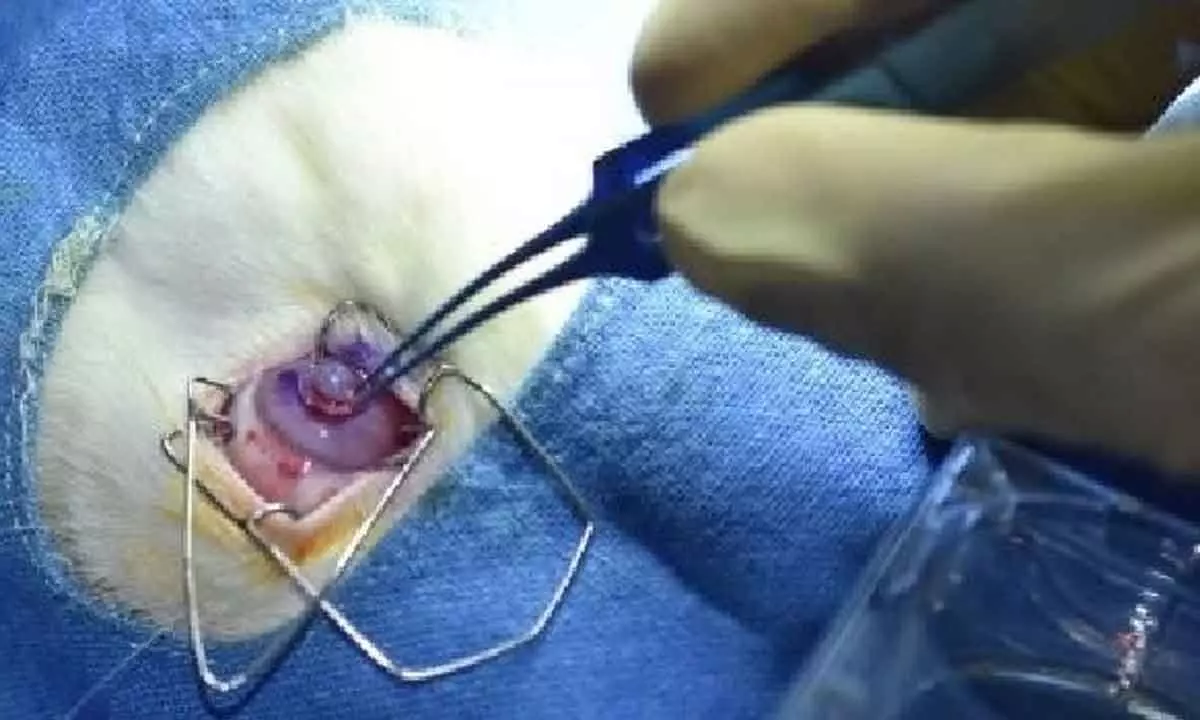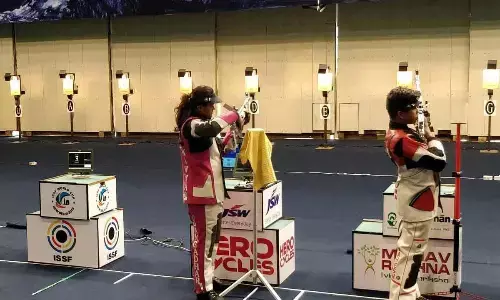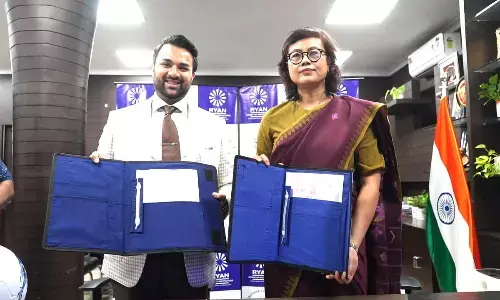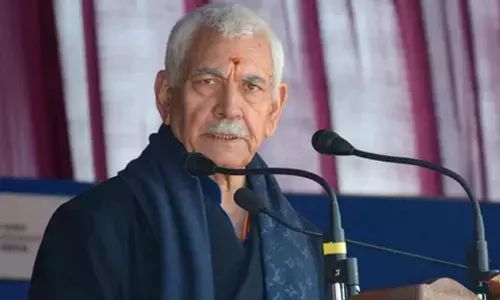India's first 3D bio-printed cornea developed in Hyd

A breakthrough has been achieved in addressing eye related ailments.
Hyderabad: A breakthrough has been achieved in addressing eye related ailments. For the first time in India, Hyderabad based researchers have developed and successfully transplanted 3D-printed an artificial cornea into a Rabbit eye.
Researchers from L V Prasad Eye Institute (LVPEI), Indian Institute of Technology-Hyderabad (IIT-H), and the Centre for Cellular and Molecular Biology (CCMB) have developed a 3D-printed cornea from the human donor corneal tissue.
Researchers said that the cornea has been developed indigenously and a completely natural and no synthetic component was used which is safe to use on patients too.
Lead Scientist from LVPEI Dr Sayan Basu and Dr Vivek Singh said "the new product will be a ground-breaking and disruptive innovation in treating diseases like corneal scarring (where the cornea becomes opaque) or Keratoconus (where the cornea gradually becomes thin with time). It is a made-in-India product by an Indian clinician-scientist team and the first 3D printed human cornea that is optically and physically suitable for transplantation. The bio-ink used to make this 3D printed cornea can be sight-saving for army personnel at the site of injury to seal the corneal perforation and prevent infection during war-related injuries or in a remote area with no tertiary eye care facility."
Dr Bokara Kiran Kumar, Senior Scientist, CCMB, one of the lead investigators of the project said, "It will be interesting to see how the bio-printed cornea would integrate and contribute to vision restoration by modulation of the pathological microenvironment. Multiomic approaches would be used to understand these processes.
Dr Falguni Pati, Associate Professor, Department of Biomedical Engineering, IIT Hyderabad said that, "the researchers used a bio mimicking approach to provide an optimised microenvironment for stromal regeneration while maintaining the curvature and thickness of the bio-printed cornea to facilitate surgical implantation. We are hopeful about the positive outcome of India's first 3D bio-printed corneal graft."
The researchers used decellularised corneal tissue matrix and stem cells derived from the human eye to develop a unique biomimetic hydrogel (patent pending) that was used as the background material for the 3D-printed cornea. The 3D-printed cornea is composed of materials deriving from human corneal tissue, it is biocompatible, natural, and free of animal residues. In addition, since the tissue used for this technology is derived from donor corneas that do not meet the optical standards for clinical transplantation, this method also finds unique use for the donated corneas that would otherwise be discarded.








